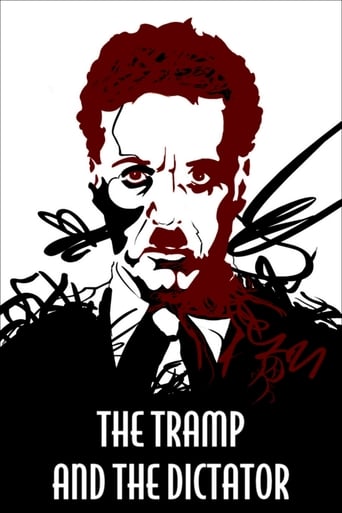Edgar Allan Pooh
" . . . who did not want Peace," after World War Two, such as the American Legion, acclaimed writer Ray Bradbury says near the end of THE TRAMP AND THE DICTATOR, a nearly hour-long Criterion documentary on Charlie Chaplin's most important film, THE GREAT DICTATOR. Though this piece is as good as far as it goes, many viewers--such as myself--will want to do follow-up research about WHY Chaplin became banned from America despite making this movie, which spelled the beginning of the end of the Axis, Hitler, and Mussolini. What they will discover is that America was as nearly divided in the 1920s and 1930s as it is Today. Armies of World War I vets marched in West Virginia, shooting it out with the stooges of the Fascist Mine Managers. Though most of Hollywood was Anti-Hitler, an eventually-triumphant subset led by director John Ford and his protégée, the notorious draft dodger John Wayne, backed the Fascists. Just as the Rich People's Party specializes in Voter Suppression, Unconstitutional Supreme Court Jiggering, and Promotion of Wealth Disparity Today, so too did this Cabal led by Ford and Wayne target Chaplin and all the other Champions of Freedom before the final A-Bomb echoes of WWII had died away. Too bad Criterion did not highlight this more here.
blanche-2
Kenneth Branagh narrates "The Tramp and the Dictator," a 2002 documentary put together by film historian Kevin Brownlow and Michael Kroft about the making of Charlie Chaplin's film "The Great Dictator." For anyone who hasn't seen it, it's an incredible 1940 film about the dictator of Tomania, Adenoid Hynkel and the Jewish barber who bears a strong resemblance to him.This documentary at first focuses on the similarities between Hitler and Chaplin as far as their backgrounds, love of the arts, and poverty and how each man overcame these adversities, one to become perhaps the greatest artist the world has ever known, and the other the most evil dictator."The Tramp and the Dictator" then goes into Chaplin's decision to make the film, the shove-it-under-the-rug attitude of Hollywood at that time, and shows color footage of the movie (it was released in black and white) as it was being filmed, and some footage of Chaplin directing.There are reminiscences by Chaplin's son Sydney, screenwriter Walter Bernstein, writer Budd Schulberg, former SS officer Reinhard Spitzy, and others."The Great Dictator" was a controversial film for its time. It stands today as a strong political statement by Chaplin and a brilliant film for its mixture of parody and drama. He was advised not to make it. His answer? "What can he do? He can't possibly be any worse than he already is."
CitizenCaine
Kenneth Branagh narrates this documentary directed by film historian Kevin Brownlow and Michael Kloft about the making of Charles Chaplin's film The Great Dictator. The film contrasts the early lives of both Chaplin and Hitler in a way which demonstrates the uncanny similarities between them. Both were interested in the arts at young ages: Chaplin escaped early poverty by performing in music halls; Hitler was rejected as a painter, fell into despair, and became a vagabond who later joined the German army. The film traces Hitler's rise to power and shows archival photos of him with a full mustache in his twenties. It was Hitler who later adopted Chaplin's mustache due to the latter's world wide popularity, indicating Hitler's shrewishness as a public relations wizard. The film contains interesting anecdotes regarding Chaplin's decision to make the film and the political dilemmas he faced in this undertaking. Several well known figures from the film world as well as witnesses during the war years contribute their thoughts and reminiscences. Blacklisted writer Walter Bernstein, writer Ray Bradbury, film critic Stanley Kauffmann, writer Budd Schulberg, Nazi insider Reinhard Spitzy, and Chaplin's son Sidney are chief among them. The film was produced by Turner Classic Movies and is an excellent companion to watching a film that was daring for its time and still stands as an entertaining parody of Hitler's Germany. ***1/2 of 4 stars.
TheRowdyMan
A fascinating documentary that explores the making of Charles Chaplin's first "talkie" The Great Dictator (1940) and draws many things that between Chaplin and Hitler had in common. The film contains colour home movie footage of the film's production which where shot by Charles' brother Sydney. These never before seen films were discovered by his daughter Victoria while looking though an old suitcase she found in the basement. The raw footage gives us an alternate insight to Chaplin's classic film which started production years before Adolph Hitler was seen as a major threat in the western world.


